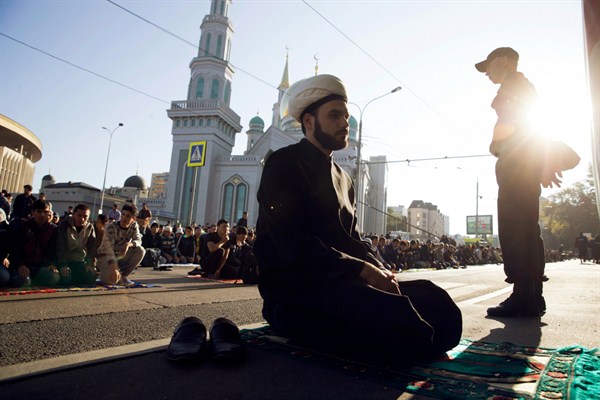Editor's Note: This article is part of an ongoing series about religious minorities in various countries around the world.
In its 2017 annual report, the United States Commission on International Religious Freedom called out Russia for creating an increasingly repressive environment for religious minorities. While the report did not put Russia on the U.S. watchdog’s list of most egregious violators, it did recommend for the first time that Russia be designated a “country of particular concern.” In an email interview, Eugene Clay, head of the religious studies faculty at Arizona State University and a scholar on religion in Russia, discusses Russian attitudes toward religion since the collapse of the Soviet Union and why the country is becoming less tolerant of religious minorities.WPR: How have attitudes toward religion in Russia evolved in the post-Soviet era, both in society and in government? How has this affected religious minorities in the country?
Eugene Clay: In 1990, under Mikhail Gorbachev, both the Soviet Union as a whole and the Russian Soviet Federated Socialist Republic within it passed new laws guaranteeing freedom of conscience—a sharp departure from earlier Soviet laws and practice that placed heavy burdens on religious communities and believers. The new laws ushered in a religious renaissance, in which religious believers of all kinds were able to worship freely. The Russian Orthodox Church, which had been the predominant church of the Russian Empire prior to the Bolshevik revolution in 1917, especially benefited from these new freedoms, but so did Muslims, Buddhists, Jews, Pentecostals, Baptists, Catholics and new religious movements.

